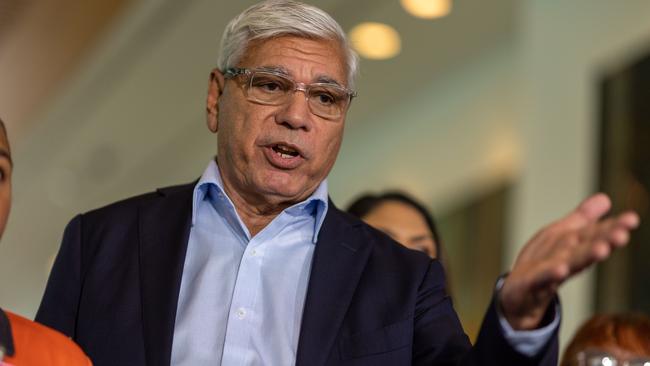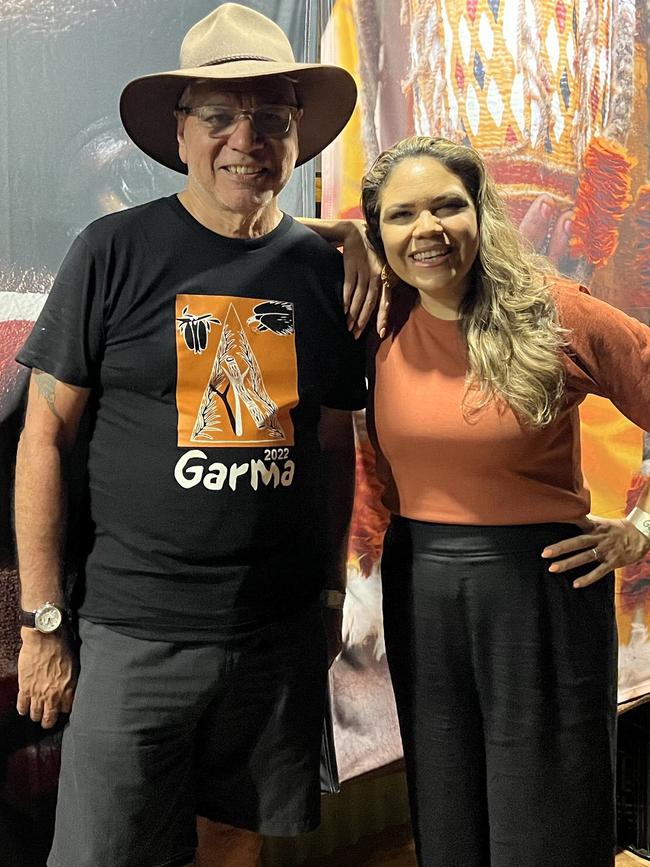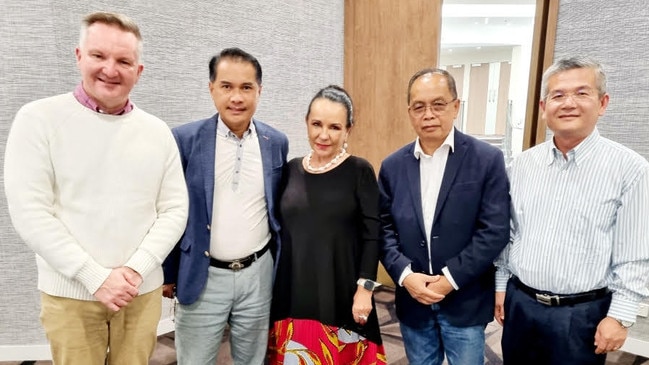Warren Mundine will appeal directly to multicultural communities to say no to an Indigenous voice to parliament
Prominent ‘no’ campaigner Warren Mundine will appeal directly to multicultural communities — not the organisations that represent them — to reject the Indigenous voice to parliament in this year’s referendum

Warren Mundine will attempt to bypass multicultural organisations he has branded “elitist’’ and appeal directly to migrant communities to reject the Indigenous voice to parliament at this year’s referendum.
Mr Mundine’s No campaign, under the banner of Recognise a Better Way and Fair Australia, is holding grassroots meetings with migrants in the hopes to secure more No votes, as he said there was growing opposition in migrant and culturally and linguistically diverse communities.
“It‘s been very successful. The crowds are growing at each of our functions and as we get closer to the bill going through parliament … people are getting more and more interested in the discussion,” Mr Mundine told The Australian.
“I’m keeping [groups I’ve spoken to] quiet … they’re scared they are going to lose their jobs.”
Mr Mundine said his grassroots campaign has involved meetings and meals with people from ‘every race and religion’ with a series of visits planned for Chinese groups across the country.
The Chinese-Australian vote has proven to be influential across the nation’s elections. In the NSW election in March, the 10 electorates home to the largest Chinese heritage populations swung away from the Liberal Party.
In Victoria’s Aston by-election – which corresponded with Premier Daniel Andrews’ return from China – Labor secured a historic win in the seat where Chinese-Australians make up about 14 per cent of the electorate’s population.
“It’s very simple, we just pick up a telephone and talk to people. They say: ‘we’d like you to come out and have a chat to our community’ and then they spread the word then we go out,” Mr Mundine said.
“Ours is a grassroots campaign, we’re not elitist.
“Look at these corporates and look at all these migrant elitist groups, their leadership … they all have come out and said they‘re going to be supportive of the voice.”
While both Yes and No cases have met with members of the migrant and culturally and linguistically diverse (CALD) communities, the activities from the No side have been intentionally quieter to protect migrants opposed to the referendum.

But the under the radar approach is expected to change in the coming weeks as Mr Mundine revealed the newly merged No campaign – Australians for Unity – will come together for a strategic meeting to plan its public engagements, advertising and social media.
The main No campaign formed after Mr Mundine’s Recognise a Better Way and Fair Australia, backed by shadow Indigenous Australians Minister Jacinta Nampijinpa Price, joined forces, bringing together 37,000 volunteers and millions in donations.
Mr Mundine said he’d have to have “a hole in the head” to not target migrants with 50 per cent of Australians foreign-born or having parents born overseas.
“They are a group of people who don’t have that lingering history of the tragedies of the 18th and 19th century. We’d be mad not to be targeting,” he told the ABC last week.
The Federation of Ethnic Communities Councils Australia (FECCA) in January said about 900 delegates and organisations “overwhelmingly” supported the referendum.
FECCA chairman Carlo Carli told this paper that educating ethnic communities on the history and experience of First Nations people would most likely deliver a Yes vote.
“By having greater empathy, they’re going to support the idea of a voice to parliament,” Mr Carli said.
“Yes, they need context. But once they’ve got context, and this is my view, I think the migration experience gives people a really strong sense of displacement and that’s been a large part of the history of Aboriginal history too.”
He defended FECCA and other multicultural organisations against the notion it was elitist.
Mr Carli revealed ‘Yes’ campaigning involved recruiting and training individuals interested in spreading the message of the voice who then go out to speak with people. He said he was unaware of the No campaign doing the same grassroots work thus far and that the group would be “struggling” to find people.
“I think it’s going to be a real strength of this campaign,” he said.
“There’s a lot of No campaigning in terms of social media and a lot of it is very negative … but I don’t see much of the stuff that Warren’s talking about.
“We are for Yes but at the same time we also want to respect everyone’s point of view.”
Australian South East Asian Network Founder and lawyer Sawathey Ek, who came to Australia as a refugee when he was 14-years-old, said he and other refugees were inclined to support the voice.
“It‘s an opportunity because it is something that as a refugee unless you’ve gone through what we have experienced, the plight of suffering, the loss of identity, the non recognition of status and in the sense that the value that you have … is all trashed,” Mr Ek told The Australian.

Mr Ek’s ethnic background is Khmer Krom, a population group recognised as members of the unrepresented nations and people’s organisation.
“One can look back and associate the plight of Aboriginals whose ancestors have gone through what refugees like myself and my family have experienced. It is not difficult to promote and also to support the Yes campaign for their voice.”
Indigenous History Lecturer at the University of Technology Sydney (UTS) Dr Leah Lui-Chivizhe said there is a lot of educational materials multicultural organisations could use to provide context to CALD communities, like engaging with Indigenous news and ensuring content is translated.
“If people have a full understanding of the history, they will get a sense of why ‘Yes’ is really a way forward for Aboriginal people and Islander people.”





